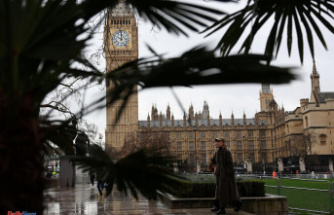The gas surcharge is intended to help ensure that important traders do not get into trouble and that gas safety is not additionally called into question as a result. But the devil is in the details. Bavaria's government thinks little of the instrument.
Munich (dpa / lby) - Bavaria's Finance Minister Albert Füracker (CSU) has called on the federal government to end the discussions about the gas levy and to reduce the energy tax. In the current situation, as much money as possible must be left with the consumer. "Bavaria has been calling for months to reduce the electricity and energy tax on all energy sources to the European minimum in order to finally relieve all consumers effectively," Füracker told the German Press Agency. Economists are skeptical about such proposals because the high prices would no longer provide an incentive to use energy sparingly.
"The federal government is responsible for security of supply, but in addition to energy procurement, the biggest challenge for consumers is the final price," said Füracker. "Instead of giving people and the economy planning security for the winter, the federal government is wasting its time bending over to a misconstructed special levy," he emphasized, with a view to the debate about the planned gas levy of 2.4 cents per kilowatt hour.
"The gas surcharge may be on the verge of being over before it even started. The inconsistencies are obvious," said Füracker. Füracker described the federal government's entire relief policy as "a mess". An overall concept is missing.
Bavaria's Economics Minister Hubert Aiwanger (free voters) also described the gas levy as a "botch". The federal government must save gas consumption in a more targeted manner where this is technically possible in order to have gas available for those who cannot replace it. "Many companies could and would switch from gas to oil or other energy sources at the push of a button if they were reimbursed for the additional costs," emphasized Aiwanger.
The federal government must ensure that the money from a gas levy is not distributed to importers and dealers who are currently earning more money than before the crisis. On the other hand, the industry should not be left alone in times of crisis and risk that supply contracts would no longer be served. If necessary, the state itself must act as a buyer. "But he must not pour citizens' money into the industry indiscriminately with a watering can," said Aiwanger.












